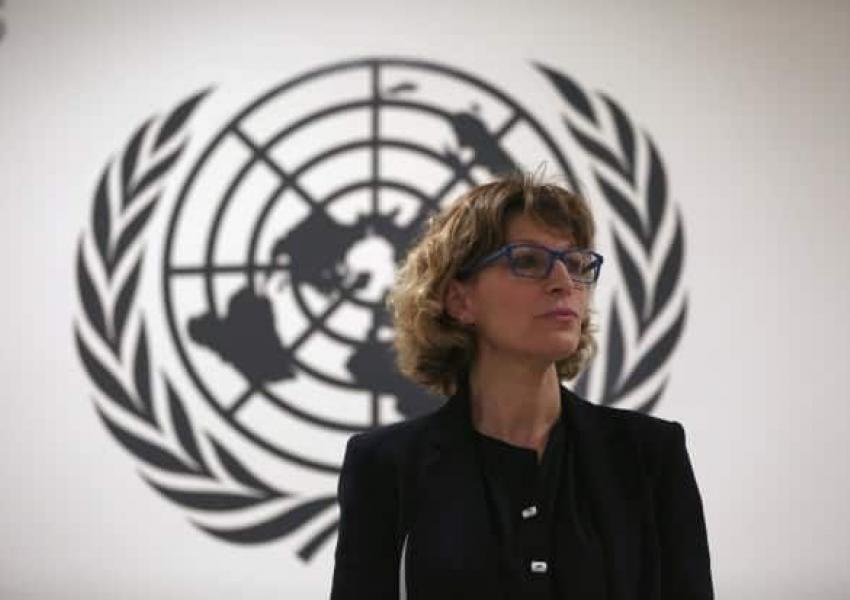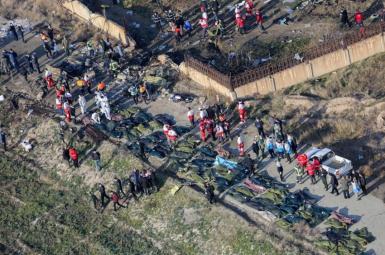
UN Rapporteur: Iran's Report On Downing Of Flight 752 Intentionally Misleading
UN Special Rapporteur Agnes Callamard has strongly rejected the Islamic Republic’s explanation for shooting down Ukrainian Flight 752, killing 176 people on board and said there are many contradictions within Iran’s report.
In a 45-page letter to the Islamic Republic officials published on February 23, Callamard described their explanations about the case as intended “to create maximum confusion and minimum clarity” and said it seems “contrived to mislead and bewilder.”
"The Iranian Government claims it has nothing to hide, yet it has failed to carry out a full and transparent investigation in line with its international obligations. As a result, many questions are left unresolved," the report states.
On 8 January 2020, the Islamic Revolutionary Guards Corps (IRGC), Iran’s ideological military force, fired two missiles at the Ukrainian plane en route from Tehran to Kiev minutes after it took off from Tehran International Airport, killing everyone on board.
In her report, Callamard states that she has sent detailed inquiries to Islamic Republic officials about the circumstances of the strike, but she is “yet to receive a response” after over two months.
In her letter, Callamard details a large number of contradictions in Iran’s explanation, including Iran's claim that an error in the alignment of the mobile missile unit contributed to the mistaken targeting, but it has not provided any explanation as to why this radar miscalibration occurred, why it had not been detected, and how it led to the targeting.
It also mentions that Iran provided no information on why other flights that took off that night, before PS752, were not targeted because of this error.
The Islamic Republic initially claimed that the plane had crashed due to technical malfunction, but after three days the IRGC was forced to accept responsibility and claimed that it was a simple human error due to high tensions with the US hours after Iran fired missiles at US bases in Iraq to avenge the assassination of the commander of the Quds Force of the IRGC, Qasem Soleimani.
“In situations of high military tension, the most effective means to prevent attacks on civil aviation is to close the airspace," Callamard said. "Had Iran, knowing full well that hostilities with the US could readily escalate, closed its airspace for civilian traffic that evening, 176 human beings would not have been killed."
The UN Special Rapporteur also indicated that the Iranian authorities seem to have tried to cover up the evidence afterward, pointing out that instead of opening a proper investigation, the authorities allowed the crash site “to be looted and then bulldozed, hampering the collection of evidence and depriving families of irreplaceable mementos of those whom they had lost."
She went on to say that without an independent, impartial, and comprehensive investigation into the incident, the families of the victims will never receive the answer they deserve, with some believing that the flight was targeted deliberately.
Callamard also criticized the Iranian government for disrespecting the remains and the family of the victims, and later harassment and threats against the family members to pressure them into accepting the compensation that the Islamic Republic had offered.








